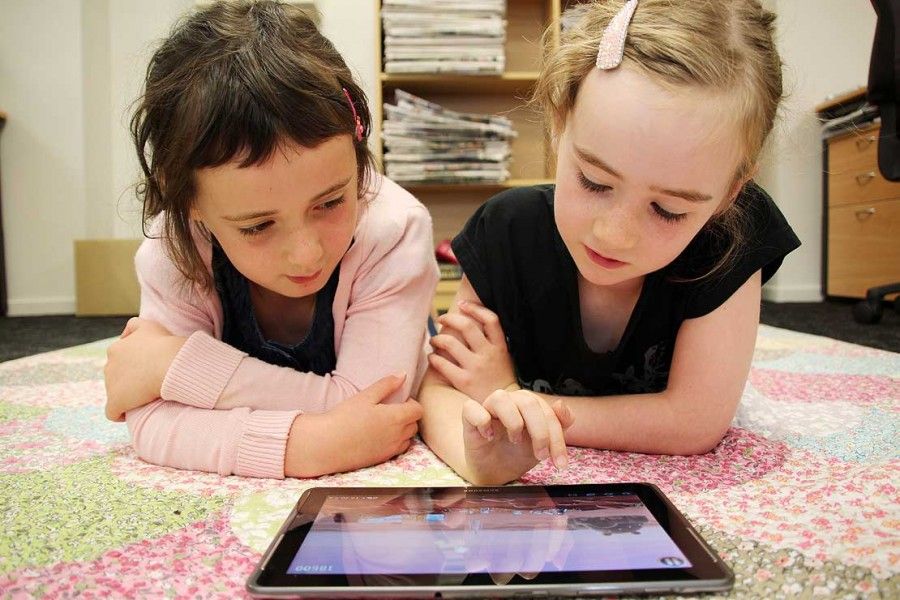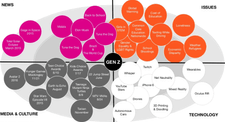The future of e-commerce: Generation Z

Introduction
The next up and coming wave of consumers are called generation Z. Born between the mid 1990s and 2010, these young people have been brought up with the internet and social networks. They are ‘Digital Natives’ and as a marketer or product owner you will need to approach this generation of consumer very differently. So, let’s learn more about them…
Who are Generation Z?
Right now they are aged between 4 and 19 years old.
They currently make up more than a quarter of the US population and this is still growing.
They spend nearly every waking hour online. 46% are connected 10+ hours per day!
They influence household purchases. You can’t just advertise to parents – Gen Z are major influencers of their parents decision making.
Tech savvy and heavy users of mobile. They’ve grown up in a digital world.
Always connected, especially to social networking channels.
High online spenders.
Characteristics of Generation-Z
Prefer to shop online
Gen Z have been brought up with the internet and they prefer to buy just about everything online as opposed to offline. 20% of girls aged 12 and under regularly visit online shopping sites. The ability to easily make purchases online and delivering the right product information at the right time will be key.
Despite having very low incomes (think pocket money) Gen Z spend much more of their share of income online compared to previous generations. When this germination grows older and their income increases, they will drive major e-commerce growth.
Born to share
Gen Z have the ability to impact your brand via social like no generation before. They’ve been born and raised in a world of social websites. If they don’t like your website or product, they won’t call you, they’ll put it online so their connected web of contacts can see. They’re more likely to communicate with brands via social media and will be more demanding, they’ll tell you exactly how they feel. 77% will vent frustration of poor service over social media and expect an immediate response and resolution.
Listening and fast response will be key to managing this generation online. And to encourage this generation of sharers to share your content, you’ll need to ensure the content you create will be something Gen Z will enjoy – a fun brand voice, engaging content and incentives for sharing.
Traditional advertising won’t be as effective
A Forbes study claims that 57% of Zs saying they would rather save money than spend it immediately: “After seeing their parents lose jobs and their older siblings move back home, this generation will avoid debt. They’ll find the best deals and will expect to test out products physically or virtually before they buy.”
Gen Z will research everything themselves, turning to online reviews, bloggers and product experts to learn about products. Do you have a brand advocacy strategy? You will need to. By harnessing people who love your brand, and encouraging or incentivizing them to share their opinions online, you’ll provide a source of authentic information that Gen Z is likelier to trust.
Multi-screening and multi-tasking are the norm
They multi-task across at least 5 screens daily. “They suffer from FOMO (fear of missing out) more than millenials, so being culturally connected is critical” researchers from Sparks and Honey wrote.

Mobile internet preferred
According to a survey by Ericsson, 58% of Gen Z prefer surfing the web on their mobile as opposed to watching TV.
High tech – Even the youngest age group (9-11 years) shows advanced technology adoption and mobile internet usage similar to their older brothers and sisters. 31% of US children aged 6-12 wanted an iPad over any other electronic device for christmas in 2010 (followed by a computer 29%, and iPod touch 29%) – gone are the days of wanting lego!
Respond more greatly to visual stimuli
A Wikia study shows that 54% visit YouTube multiple times a day. Visual sharing sites like Instagram and Snapchat are also huge avenues of communication for teens.
Marketers will need to start communicating visually to a diverse audience, across multiple screens.
Prefer simple, short, interactive content
Gen Z have the lowest attention span and they prefer media that is simple to use and interactive as opposed to passive TV. Getting and keeping their attention will be challenging though as they like to communicate in bite sizes. Easy to use and simpler platforms appeal to this generation.
Addicted to social networking
Many children now feel that social networking is more important than other aspects of their life, including their family. According to a study by the University of Maryland, 79% of children showed symptoms of distress when they were kept away from social networking devices.
Goodbye Facebook, hello Instagram
Every year, the amount of Gen Z leaving Facebook grows. 25% of 13-17 year olds left Facebook in 2014. They prefer visual platforms; the numbers joining Instagram grew from just 12% in 2012 to 23% in 2013. They also prefer incognito media platforms such as Snapchat, Secret and Whisper.

They want to change the world
60% of Gen Z want to have an impact on the world (compare this to 39% of Gen Y). 1 in 4 of those aged 16 or over currently volunteer. Globally, teens and their families, are changing their purchasing behaviour towards choosing environmentally responsible products and companies.
Not brand loyal
The products themselves and their quality are more important to Generation Z than brand names. Expect these consumers to switch to competitors much more quickly.
Obese
By 2027 most of the grown up Gen Zers will be obese (77.9% of males and 61.8% of females). 66% of kids aged 6-11 say online gaming is their main source of entertainment, so obesity comes as little surprise.
Some of the above slides are courtesy of Sparks and Honey. If you would like to read more about Generation Z we would recommend reading their full report: Sparks and Honey on Slideshare.
Share this post:

